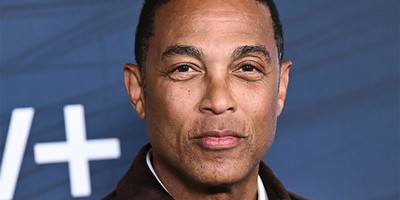I am looking forward to hearing what our next president, Barack Obama, will say in his inaugural address. The real test - the ultimate question - is whether Mr. Obama will be able to rise to the level that circumstances demand and transcend the pervasive cynicism of a populace longing for an end to partisan bickering and hopeful for a leader who will, indeed, make us "one nation under God."
Abraham Lincoln, still the model for great American political oratory, was a master at crafting remarks perfectly fitting the occasion with exactly the right phrase to express an idea or emotion. In his first inaugural address, Lincoln put words to the nation's longing for a new day after deeply held convictions divided the nation into hostile factions. He said, "The mystic chords of memory, stretching from every battlefield and patriot grave to every living heart and hearthstone all over this broad land, will yet swell the chorus of the Union, when again touched, as surely they will be, by the better angels of our nature."

Mr. Obama will certainly hope that his words will, in like manner, "touch the mystic chords of memory" to bring forth the "better angels of our nature."
The newly sworn-in President will also be hoping that a sentence or phrase from his speech will live on in history as memorably as those of Roosevelt, Reagan and Kennedy. Franklin Roosevelt said, "The only thing we have to fear is fear itself." Reagan memorably challenged the Germans to "tear down this wall." John F. Kennedy, who is supposed to have patterned his speeches after great speeches of the past, begged Americans to "ask not what your country can do for you," rather, he challenged his fellow citizens to "ask what you can do for your country."
Mr. Obama will have to live up to great expectations. His speech at the 2004 Democratic convention propelled him into the vanguard of his party. At that time, Obama declared, "There is not a liberal America and a conservative America - there is the United States of America. There is not a black America and a white America and Latino America and Asian America - there's the United States of America."
Recommended
When his candidacy was threatened by the incendiary sermons of Jeremiah Wright, Mr. Obama turned to the bully pulpit. The public was about evenly divided about whether he could pull off a major speech on race. In spite of accusations that he was willing to throw his former pastor and his grandmother "under the bus" in order to win an election, he received accolades for balancing recognition of racial prejudice with acknowledging the sensitivities of working-class white citizens. Perhaps more important, he was widely admired for taking on a difficult subject without flinching.
Certainly, this president faces challenges more daunting than many previous presidents faced. In addition, he faces a jaded public not easily moved by words; a people who want action. Even so, on January 20 everybody will be listening to the new president's words, with hundreds of thousands, perhaps even millions, making the trek to Washington, D.C., to view the event in person.
If Mr. Obama merely gives a speech appealing to members of his party on Inauguration Day, his presidency will be characterized by a partisanship that stalemates progress. On the other hand, his inaugural address could be a pivotal point in the nation's history. Carefully crafted words can lift the public's imagination to more lofty thoughts; inspirational words can move the public beyond mundane concerns to a higher plane of mutual priorities.
If Mr. Obama's first speech as the nation's president captures the hearts of all citizens - Democrats, Republican, and Independents alike - challenging us to greater national identity and civic loyalty, he will open the door for leadership that is transformative and prepare the way for a brighter, more hopeful future for all Americans - conservative or liberal, black or white.
Even those who didn't vote for him, sincerely -- no, fervently -- hope that he is up to the task. The greater good of America calls for a powerful inaugural address to launch a successful presidential term of office; should he effectively put the country's real and pressing needs ahead of partisanship and ideology, I could rejoice in affirming his leadership and look forward to his presidency.

























Join the conversation as a VIP Member